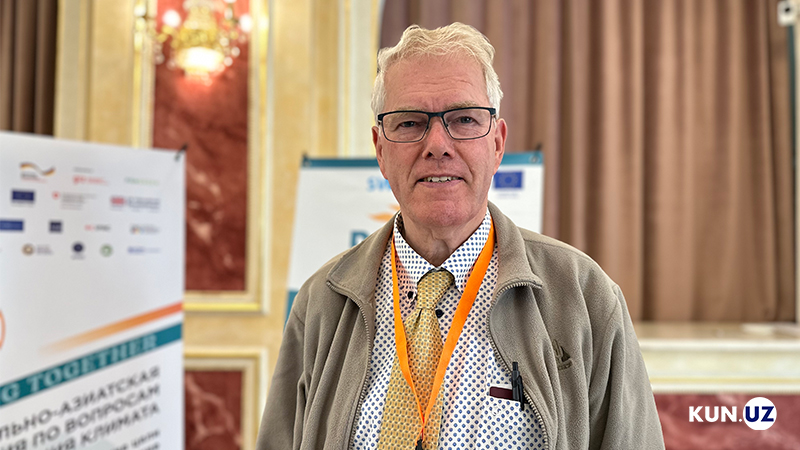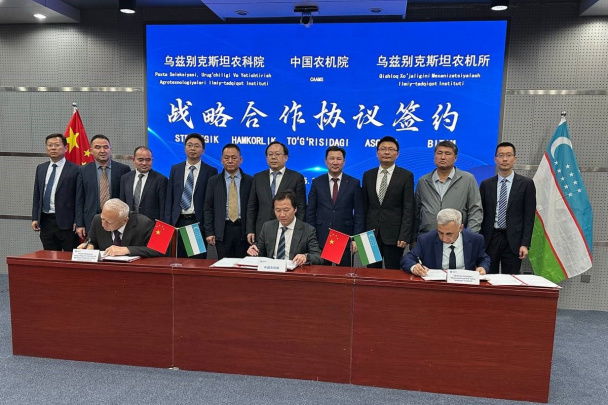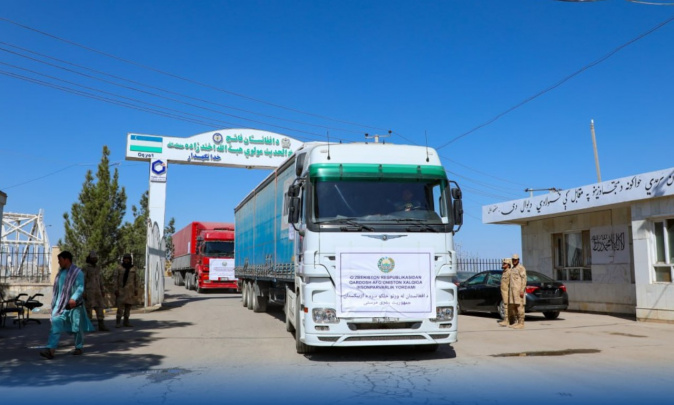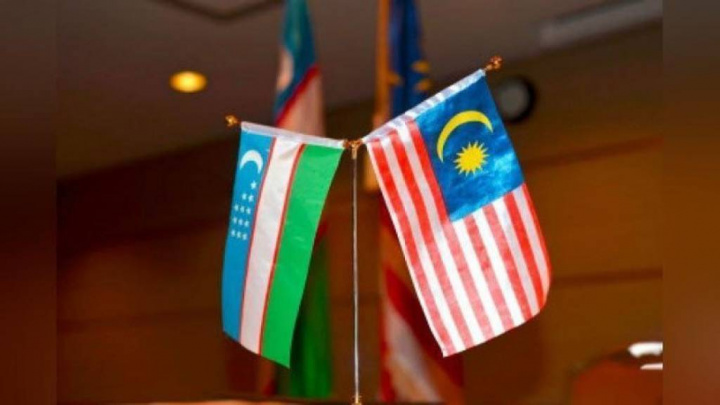Expert warns of water scarcity in Uzbekistan from Afghan canal project
According to Rieks Bosch, an international expert on natural resources and economics who spoke to Kun.uz, the Kushtepa canal being constructed in Afghanistan will divert 20 percent of the Amu Darya's water, thereby exacerbating the level of water scarcity in certain regions of Uzbekistan and negatively impacting agriculture. "In any case, it's clear that Uzbekistan will suffer," he said in an interview with a Kun.uz reporter.
From May 27-29, an international conference on climate change took place in Almaty, Kazakhstan. It was attended by several official representatives from Central Asian countries, journalists, and experts from international organizations.
Panel sessions on a variety of topics were arranged as part of the conference. One of these sessions was attended by Rieks Bosch, an international expert on natural resources and economics, who spoke to a Kun.uz reporter about the Kushtepa canal being constructed by the Taliban government and its impact on Uzbekistan.

Bosch stated that the negative impact of this project on Uzbekistan outweighs any positives, its realization could result in significant water wastage and intensify water scarcity as well as increase water prices in agricultural sectors.
"The construction of the Kushtepa canal is a very interesting topic. It was first explored by the British in 1950, then later by the Russians, and finally, the Americans wanted to give it a 'little push.' Ultimately, Afghanistan took on the project, despite not having the funds for it. Building the canal is not an issue; the major problem lies with the losses in the canal.
The Taliban had planned to divert 20 percent of the water from the Amu Darya into the canal. If they proceed with this, the use of the Amu Darya water by Khorezm and Karakalpakstan would need to be reduced by 50 percent. At first glance, this could be partly achieved by increasing efficiency, but it will definitely create quite a shortage for farmers. In any case, Uzbekistan will suffer.
As previously mentioned, building the canal is easy, but establishing an irrigation system is ten times more difficult. Whether or not the Taliban government can do this is the biggest question that needs to be answered. The foundation of this construction lies in the methodology of building structures. It seems very simple to hear; you would think you just need to dig. But for this, the irrigation scheme must be worked out very precisely and in detail. It's more complex than one might think.
I believe the Taliban will face difficulties. For instance, when water is released into rows for irrigation, it is very difficult to evenly distribute the water. Managing all this is not easy; the Taliban will need to put in more effort to operate than to build the canal. If this system is not developed, at least 30-40 percent of water along the canal could be wasted.
In Uzbekistan and Turkmenistan, the price of every cubic meter of water is calculated between $1.60 and $1.20-1.30, but its real value is $16, which is 10-15 times more expensive than the current price. Due to the above project, water prices could rise sharply. However, measures are currently being taken to conserve water, and a new project for the middle business layer is being developed, but there is currently no bridge between price development and resource management," says Bosch.
The expert also answered a Kun.uz reporter's question about what states should do in this regard.
“This is an easy, but difficult to answer question. At present, the Government of Uzbekistan is trying to establish relations with Afghanistan, but the Taliban is very "tough". Afghanistan does not intend to make any agreements with Central Asia in this matter. This project has been planned for many years, but it has not yet been implemented. Central Asian countries have not created a platform for mutual cooperation, ministers go back and forth for negotiations, but the lack of a platform for cooperation hinders the process.
Negotiations with Afghanistan must continue. The losses on the Kushtepa canal are not primarily related to how effectively the Taliban are using it at the moment. In Uzbekistan, a system is already in place for efficient water use and to profit more from water. I think that's the most important thing. Now the main focus is on efficient water supply," he said.
For information, in March 2022, the Taliban government presented a large canal construction project in northern Afghanistan. According to it, the Kushtepa canal, which starts from the Amu Darya River in the territory of the Balkh region, is being built.
Kun.uz had previously organized interviews with experts about the ecological risks following the construction of this canal.
A while ago, satellite images had shown the creation of an artificial reservoir along the Kushtepa canal being dug in the northern part of Afghanistan from the Amu Darya. Uzbekcosmos announced that the canal bank had not been washed away by the flow of the Amu Darya, and this situation occurred as a result of the rise of groundwater.
Related News

17:10 / 26.03.2025
Russia's growing influence in Afghanistan: What does it mean for Central Asia?

16:26 / 26.03.2025
Uzbekistan signs $10 million deal with China to boost agricultural machinery production

13:12 / 22.03.2025
Uzbekistan sends 200 tons of humanitarian aid to Afghanistan

15:27 / 20.03.2025



